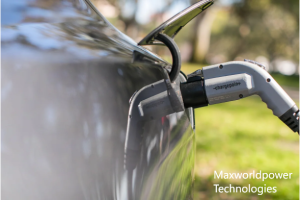Are Lithium Batteries the Best Choice for caravans?
The only thing keeping lithium batteries (also known as lithium iron phosphate, or LiFePO4) from becoming the standard choice for everyone in the field is their price point, which has increased over the past ten years from almost no commercial profile to the highest profile portable electrical storage system in the RV industry. Rarely does a manufacturer of a caravan, camper, or boat not include at least an optional lithium battery setup in their product line; for many, this is the only alternative available. What makes lithium batteries for caravans so desirable, and Why are they considered to be the main source of energy storage for the next decade?

Why Do Lithium Batteries Work Best for Caravans?
Compared to other types of batteries, a lithium battery has a longer lifespan, is more intelligent, recharges more quickly, and has more energy accessible. They cost more than standard batteries, which is a drawback. However, in terms of value for money, there is no doubt that this is a fantastic option, particularly if you want a durable battery for your caravan.
One of the most essential items you can have for your caravan is a reliable battery, which can power your electronics, water pump, and even the lighting. And because we use so many electrical devices today, a reliable battery is essential.
Below Are Some Advantages of Using Lithium Batteries for Your Caravan:
Lithium batteries are safer for the environment and contain fewer harmful elements than AGM batteries that include lead.
Lithium batteries work best when half-charged and are excellent for use with solar charging systems. This is perfect for off-grid RVs since weather and other circumstances may limit battery capacity.
Lead-acid batteries’ lifespan and efficiency might be impacted by temperatures higher than 25 degrees Celsius. However, the performance of lithium batteries is less affected by temperature. The extremely low self-discharge rate of lithium batteries also increases their durability and the amount of time they can be utilized.
Since lithium batteries are typically lighter and smaller than bulky traditional batteries, they take up less room.
In comparison to lead-acid batteries, lithium-ion batteries have 8 to 9 times the capacity and can be recharged up to 2,000 times. The durability and longevity will pay dividends over time, even if some people may find the initial cost to be prohibitive.
- Even a 10% discharge of a lithium battery is safe and won’t affect the battery’s performance or reduce its lifespan. This increases device performance and ensures that your appliances function properly. Simply expressed, this shows that as the voltage declines and the charge is lost, lithium batteries outperform lead-acid batteries.

How Do I Keep My Caravan Batteries in Good Condition?
Your caravan battery will need some maintenance after it has been installed in order to prevent deterioration and depletion over time. If you purchased a high-quality battery and treated it properly, there is no need for you to purchase a new battery the following season.
- Caravan batteries need to be recharged as soon as they are less than 50% charged for maintenance requirements. As soon as you get back from your trip or go to storage, this needs to be accomplished.
- Any little electrical devices in your trailer that might be zapping your battery should be turned off.
- Check the charge of your battery with a voltmeter once a month. After using it, let it rest for a few hours before using it again.

Conclusion
Future of lithium batteries for caravans
Some brand ambassadors predicted that most new battery setups will be lithium-based within the next ten years. “This has already begun to take place. Many automakers have already announced that they will stop including lead-acid batteries in their automobiles. The automotive industry has a significant impact on this business, and as automakers like VW, Porsche, Volvo, and BMW have announced they will phase out lead acid batteries as they go to electric-only vehicles, the cost will decrease, making them more affordable for the RV industry as a whole. Lithium batteries already outperform lead-acid batteries in terms of cost per kilowatt. The main challenge has been persuading the market that purchasing lithium batteries will result in long-term savings. Additionally, getting rid of lead is good for the environment overall as well as the user in terms of battery storage efficiency.











